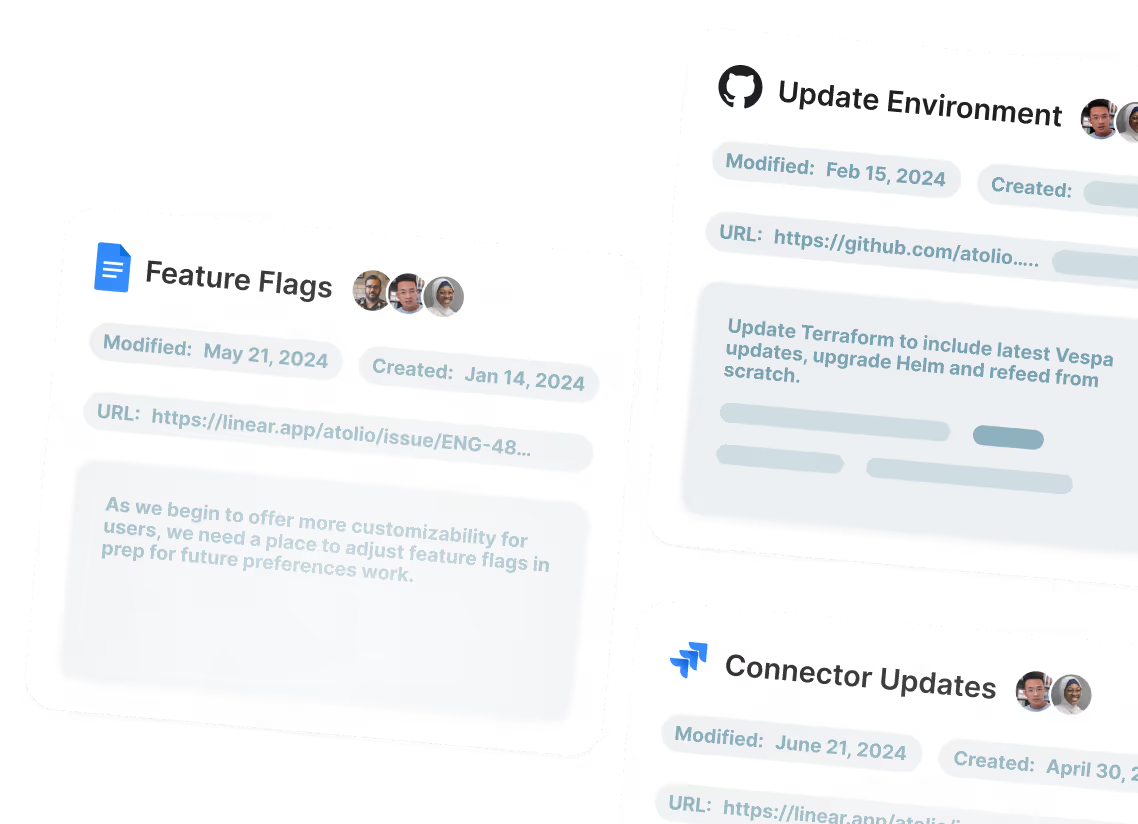As we grew from a 10 person startup to hundreds of employees, I discovered that the way I operated as a sales rep was often pretty different from my peers. My managers often assumed that my engineering background gave me a leg up. In some ways, this might have been true: I had a good understanding of our product that not everyone could match (at least early on). Over time, however, I became convinced the primary differentiator was operational. I created a systematic work style that enabled me to keep a pulse on the rapidly changing product and the environment around me. This was no easy task as PagerDuty grew from a simple on-call management/paging solution to the broad set of incident management tools it delivers today serving 15,000+ organizations of all sizes worldwide.
My day-to-day goals included:
- Staying on top of active sales engagements, and creating/closing opportunities
- Prospecting into new teams within existing client accounts
- Internalizing the ongoing changes in product and engineering to stay relevant to clients; knowing what we were fixing/building next
- Understanding which peers I needed get to know internally (especially as we grew to 150+ employees) to increase my chances of winning deals when selling as a team
- Knowing where to find the specific pieces of information I needed to do my job
It’s that last point in particular I want to draw attention to. Because I’d been there from day 1 and “lived through history”, I knew how to find what I needed and mostly self-service. But each new person who joined the team later struggled to even make sense of the sprawl of information, much less create effective systems to manage and access that information. It became very difficult for me to replicate my own successes in the folks I was trying to onboard.
For reps to maximize their effectiveness, they needed to absorb internal information and turn in into something directly relevant to our clients - whether that was product-specific information that might justify ongoing investment, or simply who should be involved in navigating a deal. Peers who weren’t able to put effective systems in place tended to “fall behind” the information curve, unable to stay up to date with the vital knowledge needed to be a trusted advisor to the executives in our client accounts.
Here are a number of examples of the kind of vital information I (and other sales reps) needed on a daily basis - i.e. my own “Where/Who” user stories:
- Where is that presentation that summarized PagerDuty’s vision in 1 slide - the latest “hamburger” graphic that I can re-use for my own presentations?
- Where are all the mentions of one of our competitors and what deals have they come up on?
- Who else in the company is talking about my clients in Slack?
- Where is that looker dashboard that the data team is putting together for client success to better understand product usage?
- Where is the latest proposal that we sent to this client?
- Where are all the notes the last rep took on this client account?
- Where is the latest post mortem of an incident we just had?
Each of these examples took a ton of time to find as I jumped between Google Drive, Slack, Looker, Salesforce, Box, and Confluence to find the answers I was looking for, multiple times per day.
As if that wasn’t enough, staying on top of all the information I needed took constant effort and focus. I found I needed to block off time on my calendar specifically to keep up with:
- NPS results in our #nps-responses channel in Slack related to specific email domains of my clients that I monitored
- Tickets opened up by clients based on their email domain in Zendesk
- Looker dashboards that the business relied on to make sense of how we’re doing as a company
- Colleagues that have contributed to documents that I own so I know who to follow up with (See revision history in a Google Doc)
- Recent distribution list emails for engineering and product, to get a summary of new feature announcements/new infrastructure changes
Finally, I had to create a system for getting myself back into “work”, which was different for every application we used:
- Email: searching for a particular email (copy/paste it from the contact record in Salesforce and paste it in Gmail) I need to follow up with
- Calendar: searching in Google Calendar for the last time I met with this company/person
- Slack: keeping up with the latest conversations in specific channels I care about
- Google Drive/Box: getting back into the Google Doc or Deck I was working on
- Salesforce: updating an opportunity’s current status after a call
- Evernote: reviewing prior notes ahead of a call
- Looker: fetching the latest product usage data on a client account to bring into a spreadsheet justifying a certain deal
- Jira: following up on tickets I’ve opened with Sales Ops, Legal, IT or Security
My system was effective, but it took a long time to create and refine, and significant ongoing effort to maintain. Worst of all, it was nearly impossible to replicate in new hires. My experiences at PagerDuty instilled me with a burning desire to solve this problem effectively, on a broad scale, in a way that other people can easily utilize.
Atolio’s goal is to solve these user stories, not just for sales and other client-facing roles, but for every single employee in an organization.
If you want to learn more, sign up for a demo with me here.




